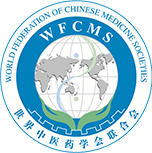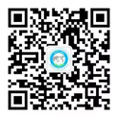Experts urge rapid digitalization of TCM to reap full benefits

Traditional Chinese medicine is expected to play a bigger role in protecting Chinese people's health, with the top leadership determined to promote its development, according to experts and practitioners.
They also said the TCM community should make greater efforts to accelerate the digitalization of the time-honored practice to boost its development.
They made the comments after a recent State Council executive meeting chaired by Premier Li Qiang, which called for further leveraging the advantages of TCM. Greater efforts should be made to ensure both its development and security, the meeting stressed.
"TCM, a treasure of China passed from one generation to another, has been practiced in more than 196 countries and regions," said Liu Baoyan, chairman of the World Federation of Acupuncture-Moxibustion Societies.
During the COVID-19 pandemic, TCM was used in the treatment of 92 percent of cases, according to an official document released in June 2020, when the country had just experienced the first severe eruption of the virus. In some hospitals, TCM was solely used to successfully treat COVID-19 patients. "The main advantage of TCM lies in treatment of diseases which mainstream modern medicine has failed to work on," said Chen Qianru, a licensed TCM practitioner at a public hospital in Yingtan, Jiangxi province. "It can also shorten the recovery period and reduce medical spending."
"What the State should do is ensure the quality of herbal medicine and train more qualified TCM practitioners who are truly capable of curing diseases."
Sun Xibao, a 48-year-old from Hangzhou, Zhejiang province, said TCM is very good at helping people restore health in a fast and effective manner.
"The State should increase its input to train more grassroots-level TCM practitioners to better serve the people," Sun said.
In recent years, China has ramped up efforts to boost the development of TCM. The State Council, the nation's Cabinet, approved a plan in February to revitalize TCM through a series of programs, including the establishment of several national TCM centers, rehabilitation centers and 35 bases for national TCM disease prevention and control.
In addition, China's master development plan for the 14th Five-Year Plan (2021-25) period also urges better use of TCM in disease prevention, treatment and patient rehabilitation. It also calls for promoting innovative development of TCM as well as strengthening its global presence.
Data from the National Development and Reform Commission's Social Development Bureau showed that as of early 2023, the central government had dedicated nearly 50 billion yuan ($6.86 billion) to developing and improving TCM-related programs since the 13th Five-Year Plan (2016-20) period, including upgrading the infrastructure and facilities of 670 county-level TCM clinics.
Meanwhile, another 1.2 billion yuan had been invested in 19 TCM universities. The number of undergraduates majoring in TCM, and those with higher degrees in the discipline, rose from 32,000 in 2015 to 46,000 in 2020.
Liu, who is also chief researcher at the China Academy of Chinese Medical Sciences, said TCM is a trove of economic resources, scientific and technological inspiration, and cultural heritage.
Digitalization is an important path for TCM to take to play its full role in China's high-quality development, and efforts in regard to this need to be stepped up.
The scientific circle has long faced the challenge of using proper methods to assess the efficacy of TCM and find statistics-based evidence for its effectiveness. Through digitalization, the value of TCM could be better understood, Liu said.
He added that the lack of awareness of digitalization, as well as the absence of key infrastructure, equipment and talent, are curbing the digital transformation of TCM.

